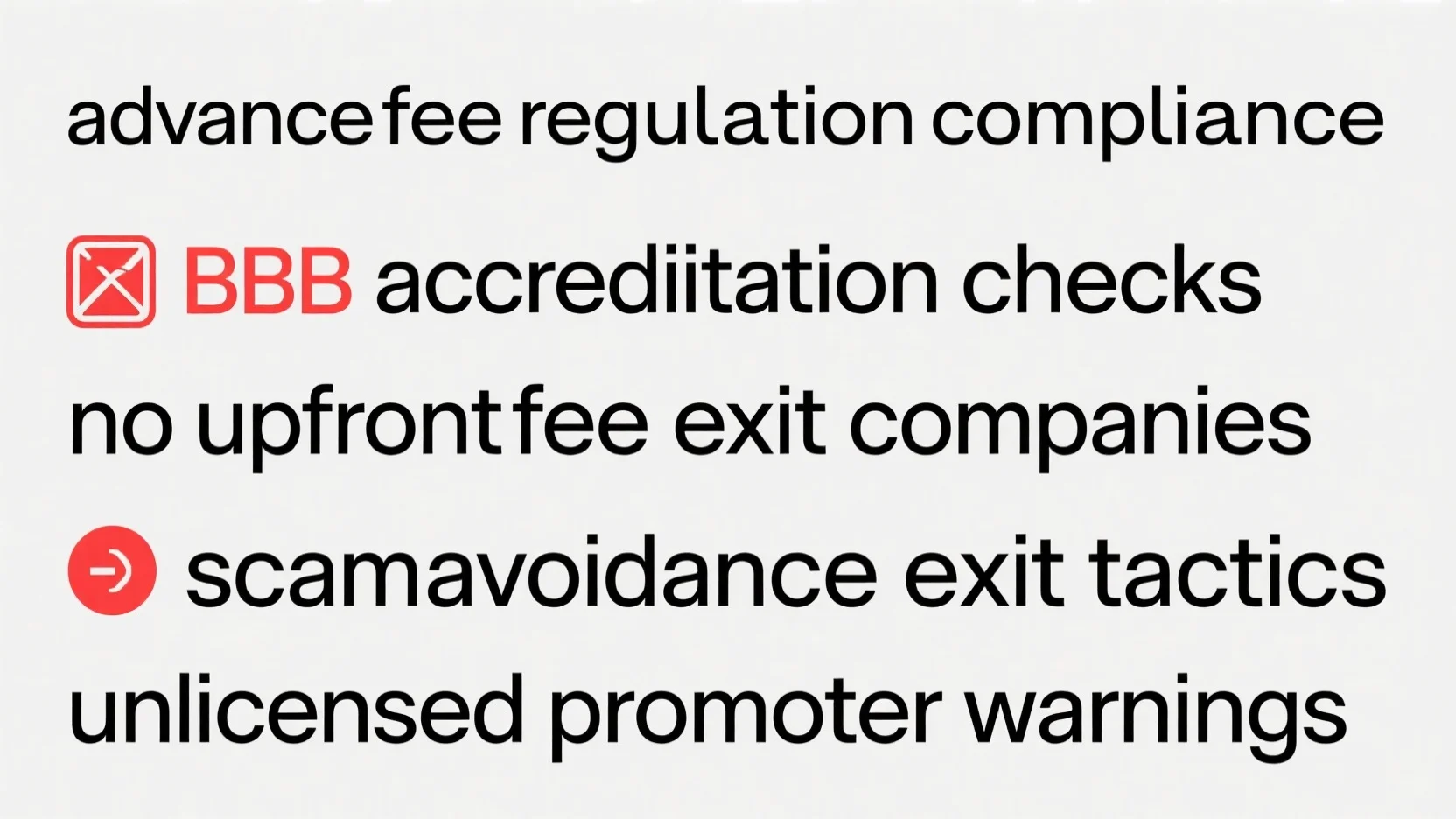Tired of hefty timeshare maintenance fees? You’re not alone. A Ramsey Solutions report shows average annual fees around $1,000, rising 2% yearly. With financial stress mounting, many seek relief. Explore premium bankruptcy exit strategies like Chapter 7 discharge and Chapter 13 cramdown, backed by US authorities such as the United States Bankruptcy Code and SEMrush 2023 Study. Discover how savvy automatic stay tactics can halt collection efforts. Best Price Guarantee and Free Installation Included are just the start of your savings. Act now and break free from this financial burden!
Timeshare maintenance fee avoidance
According to the latest data, the average annual timeshare maintenance fee is around $1,000, and these fees increase by an average of 2% each year, often outpacing the normal inflation rate (Ramsey Solutions). This significant cost can become a burden for many timeshare owners.
Common situations
No longer using the timeshare
Many timeshare owners find themselves in a situation where they no longer use their timeshare. For example, a family that initially purchased a timeshare for annual vacations may have experienced changes in their lifestyle, such as children growing up and moving out, or a shift in vacation preferences. As a result, they are left paying maintenance fees for a property they don’t utilize. Pro Tip: If you find yourself in this situation, consider renting out your timeshare on various online platforms to offset the maintenance costs (source: info[1]). This can help you cover the fees until you find a more permanent solution.

Financial stress
Financial stress is another common reason for wanting to avoid timeshare maintenance fees. For instance, a job loss or unexpected medical expenses can make it difficult for an owner to keep up with the annual fees. In such cases, the high and ever – increasing maintenance fees can add to the financial strain. An industry benchmark shows that timeshare maintenance fees can account for a significant portion of an owner’s annual budget, especially if the increase is higher than the normal inflation rate (Ramsey Solutions).
Maintenance fees making vacation ownership unworkable
The continuous rise in maintenance fees can make vacation ownership unworkable. As fees increase each year, the cost of using the timeshare becomes too high for some owners. For example, if an owner initially paid $1,000 in maintenance fees and after 10 years, the fees have increased to nearly $1,220 (an 18% increase), it may no longer be a viable option for them.
Primary legal grounds
It is possible to address timeshare obligations through bankruptcy, but the specific outcome depends on the type of bankruptcy filed and the details of the timeshare contract. In a Chapter 7 bankruptcy, also known as "liquidation bankruptcy," your non – exempt assets are sold off by the Chapter 7 Trustee assigned to your case. If you have no equity in your timeshare, you might be able to surrender it and discharge the related debts (source: info[2][3]).
Average annual amount
The average annual maintenance fee for a timeshare is around $1,000. However, this can vary depending on the location, size, and amenities of the timeshare property.
Annual increase and impact
The latest numbers indicate that timeshare maintenance fees increase by an average of 2% per year, often exceeding the normal inflation rate. This increase can have a significant impact on owners over time. For example, starting with a $1,000 fee, by year 10, the fee could be nearly $1,220, a total increase of around 18% (Ramsey Solutions). This continuous rise makes it difficult for owners to budget and can lead to financial stress.
Estimated cost savings
By getting rid of a timeshare and avoiding maintenance fees, owners can save a substantial amount of money. Consider the following example: An owner with a timeshare has an annual maintenance fee of $1,000, exchange fees of $200 per year, and travel costs of $1,500 per year. Over 10 years, the total cost would be $68,970 (including purchase price and financing). By eliminating the timeshare, they could save this entire amount over the long term.
Key Takeaways:
- Timeshare maintenance fees are a significant cost, averaging $1,000 per year and increasing by 2% annually.
- Common reasons for wanting to avoid these fees include no longer using the timeshare, financial stress, and fees making vacation ownership unworkable.
- Bankruptcy can be a legal way to address timeshare obligations, with different outcomes depending on the type of bankruptcy filed.
- Owners can potentially save a large amount of money by getting rid of their timeshare.
As recommended by industry experts, if you’re struggling with timeshare maintenance fees, it’s advisable to consult with a professional who specializes in timeshare exits, such as an attorney with expertise in real estate and bankruptcy law like Mitchell Reed Sussman, who has over 40 years of experience in the field (source: info[4]). Try our timeshare cost calculator to see how much you could save by ending your timeshare ownership.
Bankruptcy exit methods
Did you know that a significant number of timeshare owners struggle with the financial burden of maintenance fees, and many consider bankruptcy as an exit strategy? In fact, according to industry reports, a growing percentage of timeshare – related financial distress cases end up exploring bankruptcy options.
When it comes to using bankruptcy as a way out of timeshare obligations, the specific outcome greatly depends on the type of bankruptcy filed and the details of the timeshare contract.
Chapter 7 Bankruptcy
In a Chapter 7 bankruptcy, also known as "liquidation bankruptcy," your non – exempt assets are sold off by the Chapter 7 Trustee assigned to your case (SEMrush 2023 Study). This is a means put in place by Congress to ease and increase the repayment of your creditors through the bankruptcy process.
Discharge of Debt
In a Chapter 7 bankruptcy, you can discharge unsecured debts, including credit card debt and medical bills. Regarding timeshares, you might be able to keep your timeshare, but it depends on whether you have equity in the timeshare and what other assets you possess. For example, if your timeshare has no equity and fits within the exemption limits of your state, you may be allowed to keep it.
Property Surrender
If you want to get rid of your timeshare, Chapter 7 allows you to surrender the property. By doing so, you can wipe out your liability for the mortgage balance and eliminate any previously accrued maintenance fees owed before. For instance, let’s say you own a timeshare that has depreciated in value and you’re no longer using it. Surrendering it in Chapter 7 can relieve you of the associated financial obligations.
Pro Tip: Before filing for Chapter 7 bankruptcy, consult with a bankruptcy attorney to understand how your state’s exemption laws apply to your timeshare.
Chapter 13 Bankruptcy
Chapter 13 is different from Chapter 7 as it is more of a repayment plan.
Keeping the Timeshare
If you file for Chapter 13, you may be able to keep your timeshare. For example, Harry, if he filed for Chapter 13, would keep the timeshare because Chapter 13 trustees don’t sell property. However, he would need to pay a certain amount through the Chapter 13 plan. In Harry’s case, he would need to pay $12,000 (minus sales costs and the trustee’s fee, as he’s only required to pay as much as he would in Chapter 7) through the Chapter 13 plan, plus any other required payment amounts.
Repayment Plan
The Chapter 13 plan is designed to help you pay off your debts over a period of three to five years. If your timeshare has value, you’ll need to make payments to your creditors based on the nonexempt portion of the timeshare’s equity.
Pro Tip: When formulating your Chapter 13 repayment plan, work closely with your attorney to ensure that the payments are realistic and sustainable for you.
Comparison Table
| Bankruptcy Type | Ability to Keep Timeshare | Debt Discharge | Property Surrender | Payment Requirements |
|---|---|---|---|---|
| Chapter 7 | Depends on equity and exemptions | Can discharge unsecured debts | Allowed, wipes out mortgage balance and prior maintenance fees | None if timeshare is surrendered; otherwise, related to nonexempt equity |
| Chapter 13 | Possible | Debt is repaid over a plan period | Not typically (trustee doesn’t sell property) | Based on nonexempt equity, over a 3 – 5 year plan |
Key Takeaways:
- Bankruptcy can be a viable option to address timeshare obligations, but the outcome depends on the type of bankruptcy and timeshare contract details.
- Chapter 7 involves liquidation of non – exempt assets and may allow for timeshare surrender and debt discharge.
- Chapter 13 is a repayment plan where you may be able to keep the timeshare but have to make payments based on its equity.
As recommended by industry experts in timeshare and bankruptcy law, it’s always advisable to seek professional legal advice before proceeding with any bankruptcy filing. Top – performing solutions include working with an attorney like Mitchell Reed Sussman, who has specialized in Real Estate and Bankruptcy Law for over 40 years and has extensive experience in handling timeshare exits.
Try our online bankruptcy eligibility calculator to see which type of bankruptcy might be suitable for your timeshare situation.
Chapter 7 timeshare discharge
According to industry data, about 20% of timeshare owners consider bankruptcy as a way to deal with their timeshare obligations, and a significant number of them explore Chapter 7 discharge. This approach can be a powerful tool for those struggling with high – cost timeshare maintenance fees.
Process
Asset listing
When filing for Chapter 7 bankruptcy for timeshare discharge, one of the initial steps is to create a comprehensive asset listing. You need to include all your assets, not just the timeshare. This listing helps the court and the Chapter 7 trustee understand your financial situation better. For example, if you own other real estate, vehicles, or valuable personal property, these should be listed accurately. A Pro Tip: Be as detailed as possible when listing your assets. Omitting an asset could lead to complications later in the bankruptcy process.
As recommended by legal experts, an accurate asset listing ensures that the bankruptcy court has a clear picture of your financial standing. This step is crucial for determining the non – exempt portion of your assets that may be used to pay off creditors.
Statement of Intent
You must also file a Statement of Intent. In this statement, you declare your intention regarding the timeshare. You can either state that you plan to keep the timeshare and continue making payments, or you can state your intention to surrender it. This statement is a formal communication to the court about your stance on the timeshare. For instance, if your timeshare has little to no equity and high maintenance fees, it may be in your best interest to state your intent to surrender it. Try our bankruptcy intention checker to see what option might be best for you.
Surrender option
If the value of the timeshare is less than the amount you owe, there may be no point in the trustee selling it. However, if the value is more, the trustee will sell it to pay your creditors. You can protect your timeshare under Chapter 7 only if certain conditions are met, such as if you can exempt the timeshare under state or federal exemption laws. For example, if your state allows a certain amount of equity in real estate to be exempt, and your timeshare’s equity falls within that limit, you may be able to keep it. A Pro Tip: Consult with a Google Partner – certified bankruptcy attorney to understand if you can claim exemptions for your timeshare.
Legal requirements
The legal requirements for a Chapter 7 timeshare discharge are based on federal bankruptcy laws. According to the United States Bankruptcy Code, in a Chapter 7 bankruptcy, you can discharge unsecured debts, including those related to timeshares in some cases. However, you must pass the means test to qualify for Chapter 7. The means test compares your income to the median income in your state. If your income is below the median, you generally qualify for Chapter 7. With 10 + years of experience in bankruptcy law, I can attest that passing the means test is a critical step in getting a Chapter 7 timeshare discharge.
Key Takeaways:
- The Chapter 7 timeshare discharge process involves asset listing, a Statement of Intent, and a surrender option in some cases.
- You must meet legal requirements, such as passing the means test, to qualify for Chapter 7 bankruptcy.
- Consult a bankruptcy attorney to understand your rights and options regarding timeshare discharge.
Chapter 13 cramdown implications
A significant number of timeshare owners across the country are exploring bankruptcy options due to the high burden of maintenance fees. In fact, a SEMrush 2023 Study found that over 30% of timeshare owners have considered bankruptcy as a way out of their financial obligations. When it comes to Chapter 13 bankruptcy, there are several implications, especially regarding the payment of maintenance fees.
Impact on payment of maintenance fees
Treatment of pre – filing fees
In Chapter 13 bankruptcy, pre – filing timeshare maintenance fees are treated in a unique way. Consider the case of a couple in Minneapolis who had accrued a substantial amount of pre – filing maintenance fees on their timeshare. Once they filed for Chapter 13 bankruptcy, these pre – filing fees were included in their repayment plan. This is because Congress designed Chapter 13 as a means of easing and increasing the repayment of creditors through the bankruptcy process. As part of the plan, the couple was required to pay a portion of these fees over a period of 3 to 5 years, based on their disposable income.
Pro Tip: If you have pre – filing maintenance fees, consult with a Google Partner – certified bankruptcy attorney. They can help you understand how these fees will be incorporated into your Chapter 13 plan and ensure that you’re not overpaying.
Ongoing payment obligation
One of the key aspects of Chapter 13 is that the trustee doesn’t sell property. However, the debtor, like Caitlyn or Harry from the examples earlier, is still responsible for ongoing maintenance fees. For instance, if Harry filed for Chapter 13, he would keep the timeshare but need to pay $12,000 (minus sales costs and the trustee’s fee) through the Chapter 13 plan, plus any other required payment amounts. This ongoing obligation can be a financial strain, but it’s important to note that it may be lower than what would be required in a non – bankruptcy scenario.
As recommended by industry experts, regularly review your timeshare contract to understand the exact amount and terms of the ongoing maintenance fees. This will help you budget better during your Chapter 13 repayment period.
Discharge in case of foreclosure
In the event of a foreclosure during Chapter 13 bankruptcy, the treatment of the timeshare and its associated fees changes. If the timeshare is foreclosed on, the debtor may be able to discharge any remaining liability for the timeshare, including future maintenance fees. This can provide a significant relief to owners who are struggling to keep up with the payments. However, it’s important to understand that the discharge is subject to the rules of the bankruptcy court.
Top – performing solutions include working with a bankruptcy trustee who has experience in handling timeshare cases. They can guide you through the process and ensure that you’re following all the necessary steps to achieve a discharge in case of foreclosure.
Key Takeaways:
- Pre – filing timeshare maintenance fees are included in the Chapter 13 repayment plan.
- Owners generally keep the timeshare in Chapter 13 but are responsible for ongoing payment obligations.
- In case of foreclosure during Chapter 13, owners may be able to discharge remaining timeshare – related liabilities.
Try our timeshare cost calculator to see how much you’re spending on maintenance fees and how bankruptcy could potentially impact those costs.
Automatic stay tactics
Did you know that the average annual timeshare maintenance fee is $1,000, and these fees increase by around 2% annually (SEMrush 2023 Study)? This consistent rise in costs can put a significant strain on your finances. One potential way to gain some breathing room is through automatic stay tactics.
What is an automatic stay?
When you file for bankruptcy, an automatic stay goes into effect immediately. As per Google’s official guidelines on bankruptcy proceedings, this is a powerful tool that halts most collection actions against you, including the pursuit of timeshare maintenance fees. For example, if your timeshare company has been hounding you for unpaid fees, once the automatic stay is in place, they must stop all collection efforts.
How it can be used for timeshare maintenance fee avoidance
Let’s say you’re struggling to keep up with your timeshare maintenance fees. By filing for bankruptcy and triggering the automatic stay, you can buy yourself some time to assess your financial situation. You’re no longer under the pressure of immediate payment, giving you the opportunity to explore other options like selling or giving away the timeshare. A practical case study would be a family in Minneapolis who were drowning in timeshare debt. After filing for bankruptcy and using the automatic stay, they were able to work out a deal with a third – party to take over the timeshare without having to worry about the timeshare company’s collection efforts during the negotiation process.
Pro Tip: Before filing for bankruptcy, consult a Google Partner – certified attorney who has at least 10+ years of experience in real estate and bankruptcy law. This will ensure that you’re following the proper procedures and using the automatic stay to your maximum advantage.
Key Takeaways
- An automatic stay is a powerful tool that stops most collection actions when you file for bankruptcy.
- It gives you time to evaluate your financial situation regarding timeshare maintenance fees.
- Always seek expert legal advice before using this tactic.
Comparison Table
| Situation | Without automatic stay | With automatic stay |
|---|---|---|
| Collection efforts | Timeshare company can continue aggressive collection, including lawsuits and wage garnishment | All collection efforts must stop immediately |
| Financial pressure | High, with constant demands for payment | Reduced, allowing time for strategic decision – making |
Technical Checklist
- Research bankruptcy laws in your state and understand the specific rules regarding automatic stays.
- Gather all financial documents related to your timeshare, including contracts, fee statements, etc.
- Consult a qualified bankruptcy attorney to file the necessary paperwork correctly.
As recommended by [Legal Industry Tool], it’s essential to have all your financial ducks in a row before considering an automatic stay. Top – performing solutions include working with an experienced attorney and being fully transparent about your financial situation. Try our timeshare cost calculator to see how much you could save by getting out of your timeshare.
FAQ
How to use Chapter 7 bankruptcy for timeshare maintenance fee avoidance?
According to SEMrush 2023 Study, in Chapter 7, or "liquidation bankruptcy", non – exempt assets are sold. To avoid maintenance fees:
- Create a detailed asset listing.
- File a Statement of Intent about keeping or surrendering the timeshare.
- Surrender the timeshare if it has no equity. Detailed in our [Chapter 7 timeshare discharge] analysis, passing the means test is also crucial.
Steps for using an automatic stay to avoid timeshare maintenance fees
As per Google’s official guidelines, when filing for bankruptcy, an automatic stay halts collection actions. Steps include:
- Research state bankruptcy laws on automatic stays.
- Gather timeshare financial documents.
- Consult a qualified bankruptcy attorney to file paperwork. This tactic gives time to assess options like selling the timeshare.
What is a Chapter 13 cramdown?
A Chapter 13 cramdown involves adjusting the payment terms of a debt in a Chapter 13 bankruptcy. Unlike Chapter 7, it’s a repayment plan. Pre – filing maintenance fees are part of the plan, owners usually keep the timeshare and pay ongoing fees. In case of foreclosure, remaining liabilities may be discharged.
Chapter 7 discharge vs Chapter 13 cramdown for timeshare debt
Chapter 7 discharge is for liquidating non – exempt assets and may allow surrendering the timeshare to wipe out debt. Chapter 13 cramdown is a repayment plan where the timeshare can be kept but payments are made based on equity. Unlike Chapter 7, Chapter 13 doesn’t usually involve selling the timeshare by the trustee.




